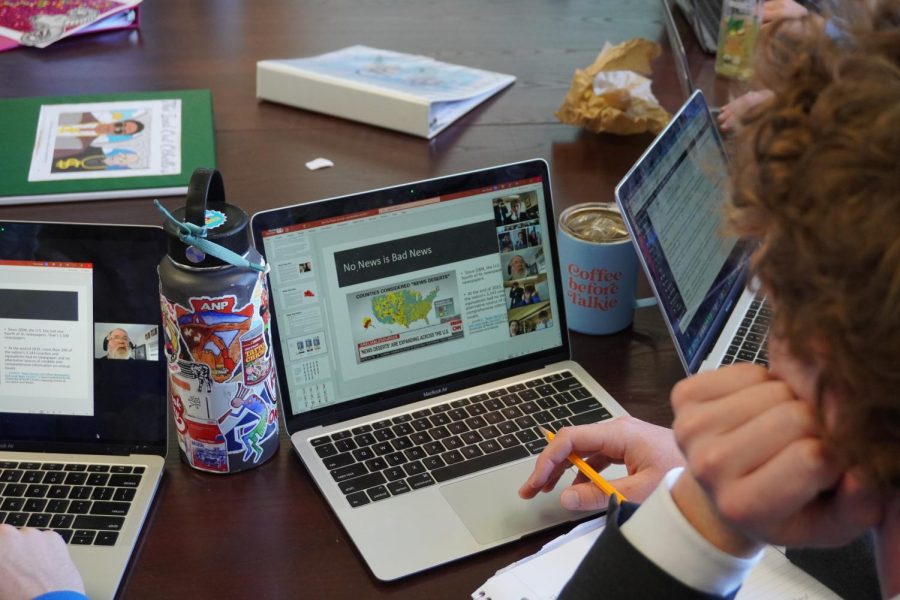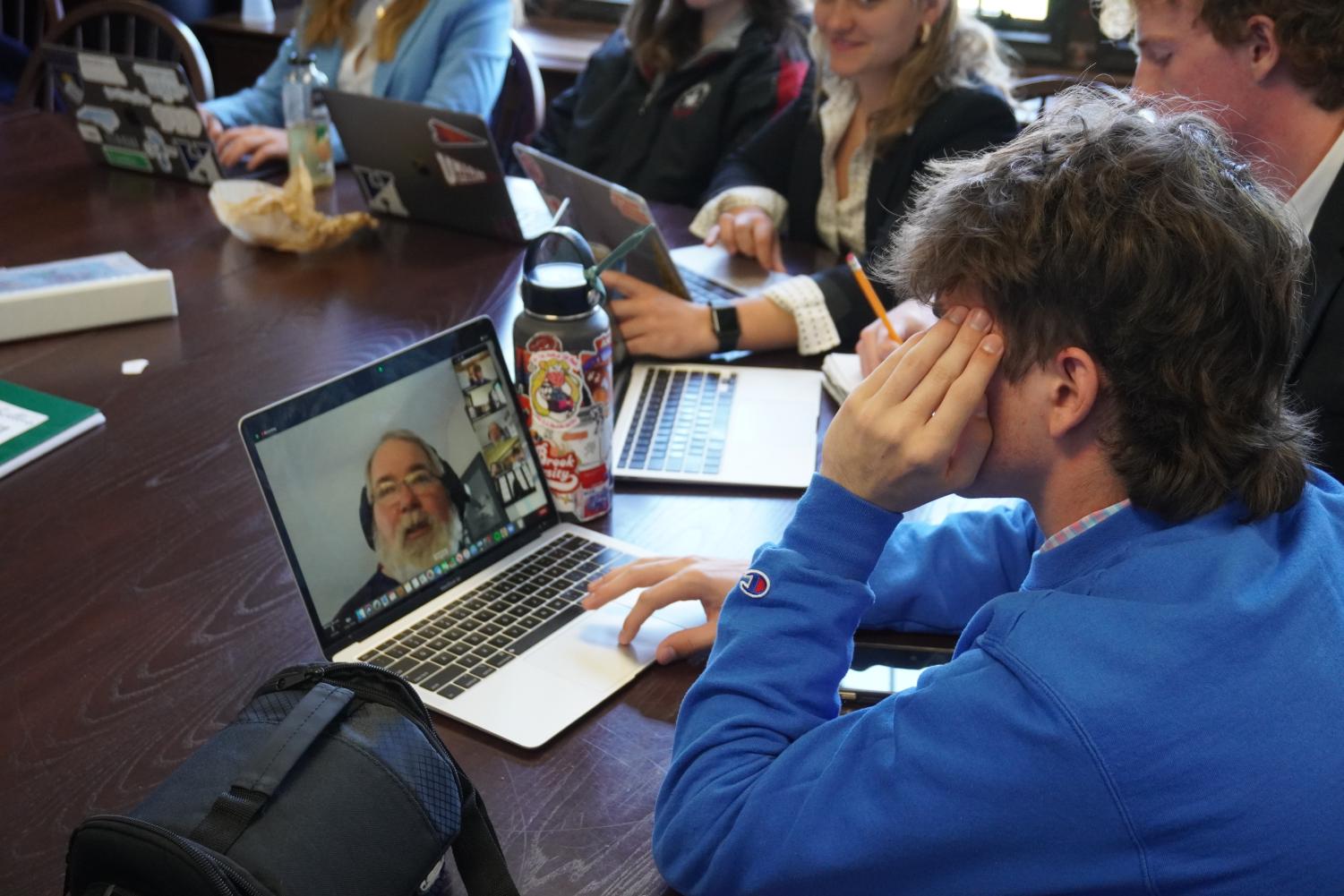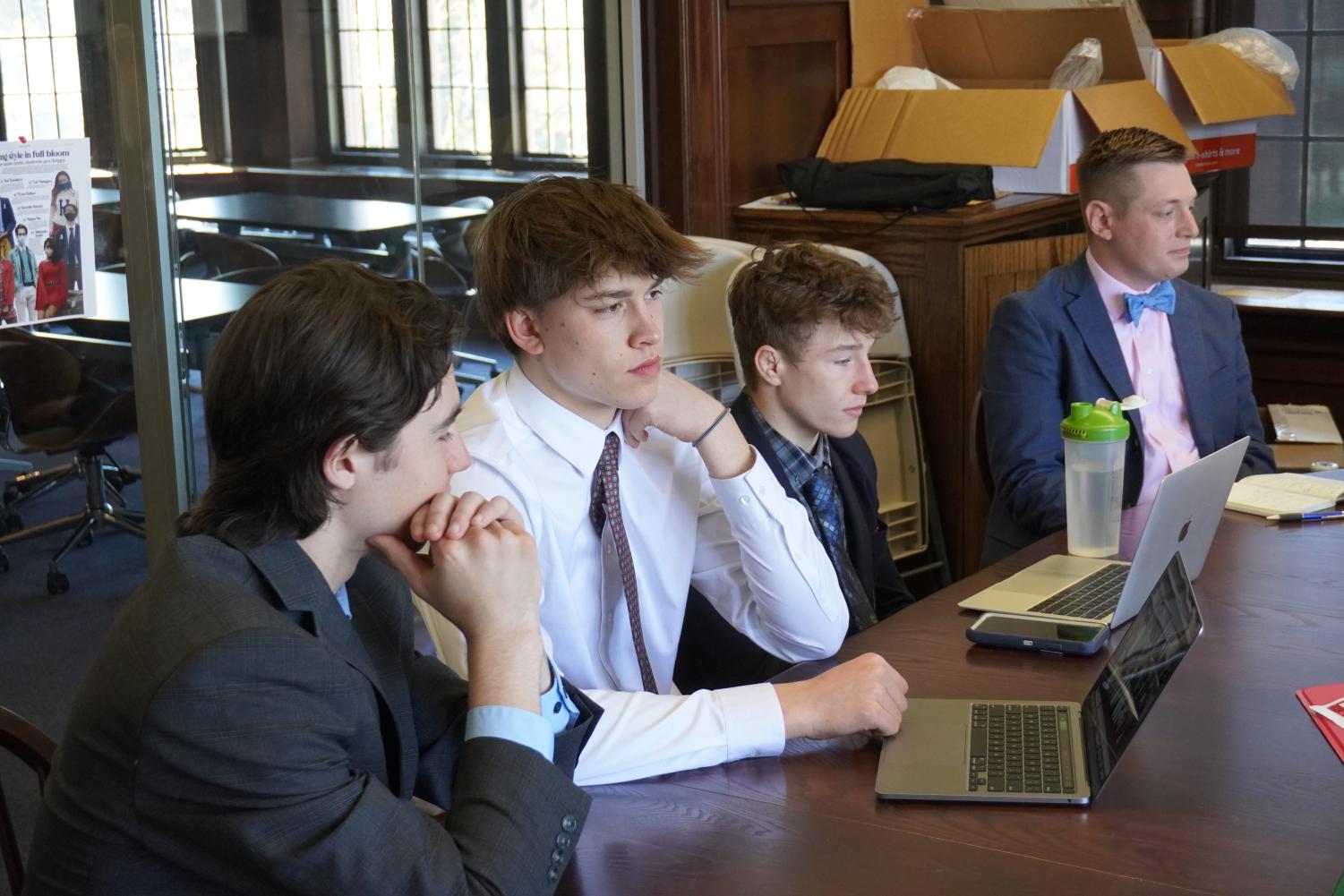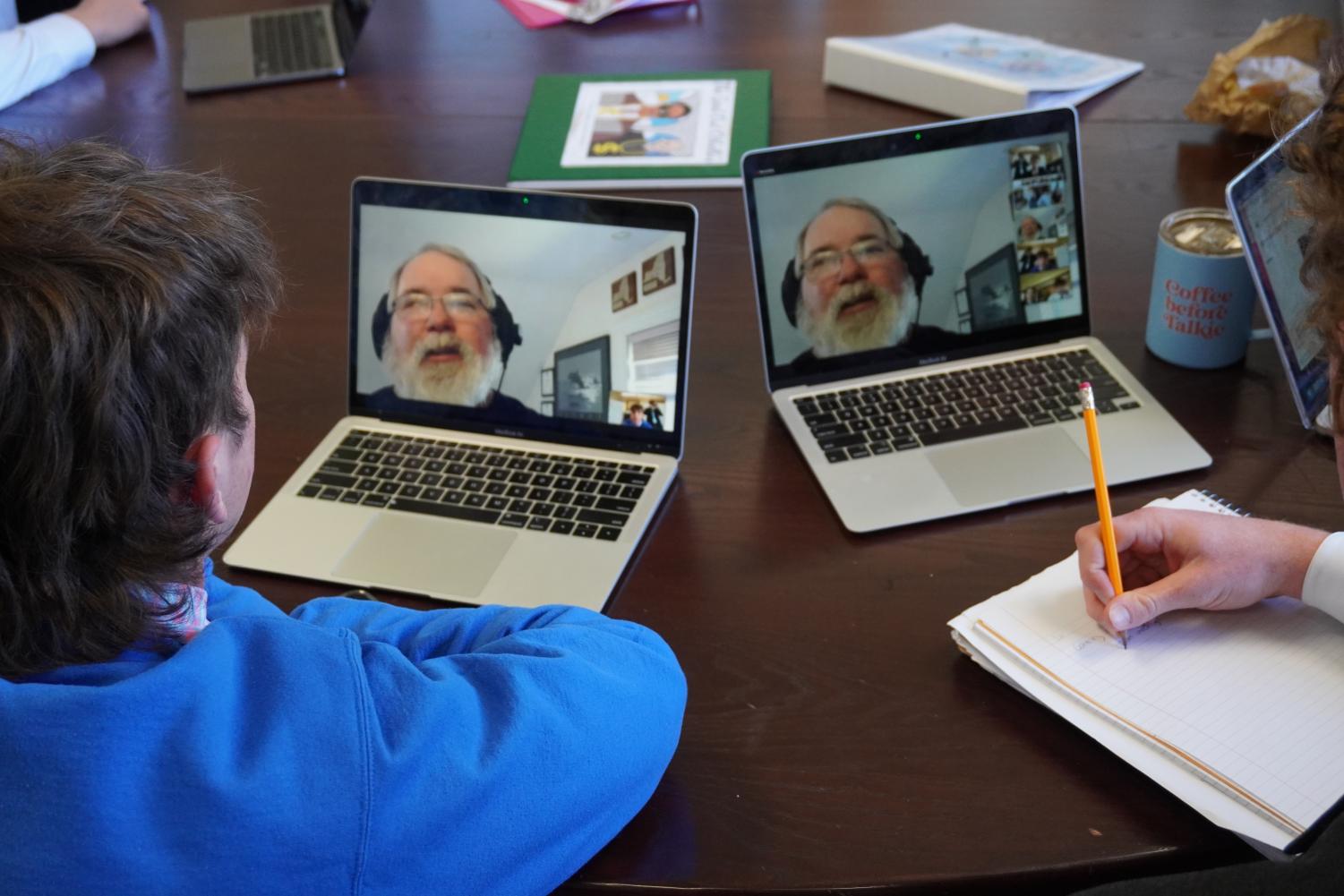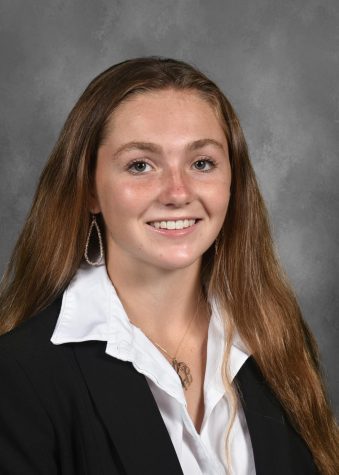The Pottstown Mercury’s Evan Brandt reflects on the importance of local news
Media: Cole Bilotta ’23
Jesse Corser-James ’23 takes notes on Brandt’s slideshow presentation.
Evan Brandt is the sole writer left for Pottstown’s very own newspaper, The Mercury. He joined the Hill School journalism class over Zoom on April 26 to discuss his extensive career in journalism and the struggles and rewards of the job.
Brandt was spotlighted in a 2020 New York Times article titled “The Last Reporter in Town Had One Big Question for His Rich Boss.” This article described the lifetime of the now single-staffed newspaper and Brandt’s role in it. The once lively newspaper was struck hard by hedge funds, COVID-19, and the large corporations that took over local papers.
Now, The Mercury is kept alive by Brandt, from his attic above his house where he spends an extensive amount of time trying to cover each story Pottstown has to offer. A nearly impossible task that he faces every day.
The Pottstown veteran previously lived in suburban New York where he was the executive editor of many different publications, including many he didn’t have much interest in. Brandt humorously reflected on one story from his days before The Mercury saying, “It’s 2:30 in the morning and I am editing some copy about what you get at your bridal party and I thought to myself, ‘Yeah, this is not why I got into this business. I got into this business to annoy powerful people.’”
Annoying powerful people is exactly what Brandt became good at of late. Hedge funds became a major obstacle for local papers during the pandemic. These hedge funds laid off almost all Pottstown reporters; not including the rest that had previously quit during COVID-19. The managers of the hedge fund that own The Mercury were faced with an unhappy Brandt who asked the question, “What value do you place on the local news?” They did not answer the question.
Brandt even took this problem to Heath Freeman, the president of Alden Global Capital (the company that owns The Mercury and many other local newspaper sources), and protested in front of Freeman’s home in Long Island. Large corporations have taken over local papers and made them general, thus taking out the personal connections in local news. These large corporations, according to Brandt, only care about their financial gain. This led to laying off writers, which resulted in less reporting on important matters.
Brandt said that when corporate companies own local newspapers it “represents a sort of homogenization of news, which does not reflect the local community.” Brandt showed the Hill students an example of multiple papers from different local newspapers under the same large corporation posting the same generic cover image of Joe Biden after he won the election pictured below:
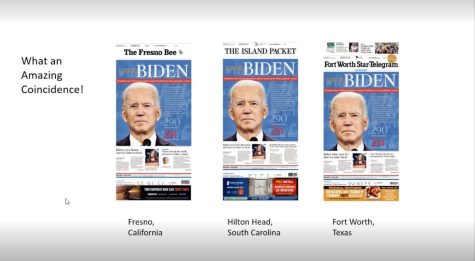
To Brandt, reporting is a way to make a difference in the community, whether this comes to breaking a story about a building containing unsafe chemicals or expanding media coverage about minorities in Pottstown. He says that his current favorite type of stories are the ones that “expand our understanding of previously unreported parts of the community”.
Local papers don’t only expose undercover crime and highlight citizens; they influence the community’s elections and businesses as well. Brandt stated that local papers lead to a higher voter turnout and lead less straight ticket voting. By papers highlighting candidates, citizens can easily learn more about the individuals instead of voting by their party.
With all that Brandt has been through to keep this paper alive, including working in his attic, many wonders why he hasn’t left Pottstown or The Mercury. But to Brandt, the answer is simple: “In my business, people tend to move around a lot. I don’t feel you really get to know a community very well that way. I tend to dig in and stay put. I think you might end up being a better reporter and serving the community that way.”
























